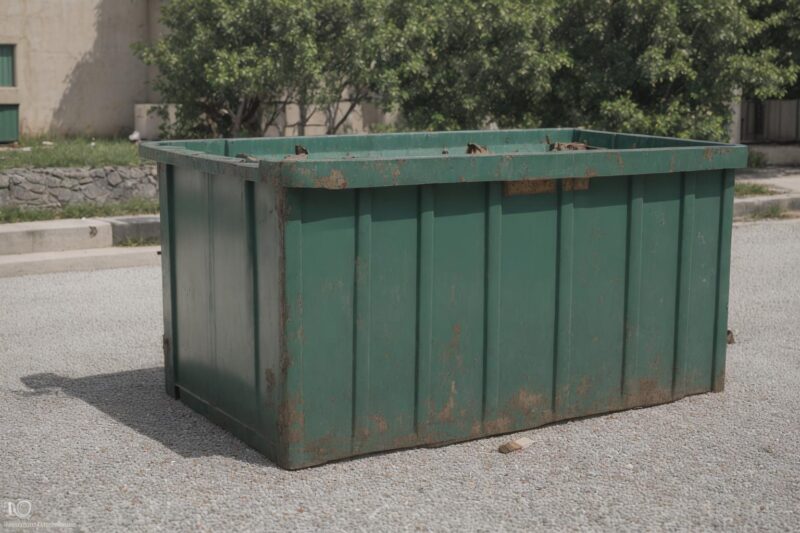Dumpster sharing has emerged as a practical and environmentally friendly waste management solution, fostering a sense of community responsibility and sustainability. Understanding the guidelines for dumpster sharing is critical in maintaining cleanliness, promoting recycling and ensuring the well-being of local neighborhoods in New Jersey. This article explores the guidelines for dumpster sharing in New Jersey, shedding light on the dos and don’ts that residents should be aware of.
The concept behind dumpster sharing
Allowing individuals to share a dumpster redefines waste management by fostering community collaboration. Instead of isolated disposal practices, this innovative concept encourages individuals and businesses to collectively utilize designated dumpsters for a variety of items.

What exactly is dumpster sharing?
It goes beyond conventional garbage disposal, turning dumpsters into communal spaces where one person’s trash becomes another’s priceless finding. This sustainable strategy fosters a sense of social responsibility while also lessening the negative effects of excessive waste on the environment. Dumpster sharing envisions a situation where communities work together to reduce waste, repurpose items, cultivate a culture of resourcefulness, and ultimately create an environmentally conscious and interconnected society.
Guidelines for Responsible Dumpster Sharing in NJ
Permitting regulations
Understanding New Jersey’s permitting regulations for dumpster sharing is critical to avoiding legal complications and fines. Following these guidelines ensures that your dumpster-sharing activities are in accordance with state laws, environmental standards, and local ordinances. Permit awareness also demonstrates a commitment to responsible waste management, which protects both the community and the environment. Failure to comply may result in legal consequences, so it is critical to stay informed and obtain the necessary permits for dumpster sharing in New Jersey.
Communication & Coordination
Effective communication and coordination are critical in the scope of dumpster sharing in New Jersey. In a densely populated state with strict waste management regulations, seamless collaboration ensures timely pickups and drop-offs, avoiding logistical constraints. Clear communication between all parties involved ensures a smooth operation, promotes resource optimization, and reduces environmental impact. Understanding these guidelines will help you navigate the complexities of waste disposal and encourage your community to adopt sustainable and effective dumpster-sharing practices.
Waste sorting and recycling
Careful waste sorting and recycling are critical for successful dumpster-sharing initiatives in New Jersey’s vibrant landscape. Encourage participants to divide their trash into three categories: biodegradable, recyclable, and non-recyclable. Make it obvious what belongs in the shared dumpster and what doesn’t. Also, stress the value of recycling to lessen the impact that trash disposal has on the environment. This collaborative effort not only improves New Jersey’s quality of life but also establishes a high standard for responsible trash management across the state.
Dumpster size & placement
The best way to find the right dumpster size for sharing is to consider the demands of your community. You should have an idea of several homes involved, the frequency of trash, and the availability of space for dumpster placement. It should be carefully positioned to provide all participants with quick access while minimizing interruption to public locations. Optimal sizing guarantees adequate capacity for diverse waste types, promoting sustainability. Thoughtful placement enhances accessibility and convenience, fostering a collaborative community effort in waste management.
Scheduled maintenance and cleaning
To avoid unpleasant odors, pest infestations, and other sanitation issues, regular maintenance is crucial for dumpster sharing in NJ. To maintain hygiene standards, create a cleaning and maintenance schedule for the shared dumpster. Encourage participants to report any problems as soon as they arise, fostering a shared commitment to the cleanliness of the shared waste disposal system. Regular upkeep ensures optimal functionality, preventing malfunctions or situations that could disrupt waste disposal operations.
Educational initiatives
You must educate and spread knowledge regarding waste disposal in your neighborhood. Organize seminars or hand out informational materials on the advantages of recycling, how to properly dispose of garbage, and how individual actions affect the environment. Knowledgeable participants are more likely to support dumpster-sharing initiatives. Educational initiatives create a culture of environmental consciousness, ensuring that dumpster sharing becomes a collaborative effort towards a cleaner and greener New Jersey.
Monitoring & enforcement
Implement a system for monitoring dumpster usage to ensure that established guidelines are followed. Assign roles to community members or leaders to oversee the program and address any deviations as soon as possible. When necessary, enforcement should be fair and transparent, emphasizing the collective responsibility of participants in keeping the dumpster-sharing initiative going. Also, develop an emergency response plan that outlines the steps to be taken in case of unforeseen circumstances.
In New Jersey, dumpster sharing embodies a commitment to environmental stewardship and community collaboration. Residents who follow these guidelines can transform dumpster sharing into a sustainable and effective waste management solution, fostering a cleaner, greener, and more harmonious living environment for all.

